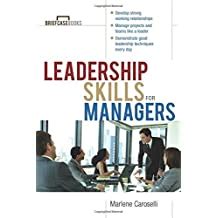A Quote by Rene Descartes
I was convinced that our beliefs are based much more on custom and example than on any certain knowledge.
Related Quotes
All of us cherish our beliefs. They are, to a degree, self-defining. When someone comes along who challenges our belief system as insufficiently well-based - or who, like Socrates, merely asks embarrassing questions that we haven't thought of, or demonstrates that we've swept key underlying assumptions under the rug - it becomes much more than a search for knowledge. It feels like a personal assault.
Although humans have existed on this planet for perhaps 2 million years, the rapid climb to modern civilization within the last 200 years was possible due to the fact that the growth of scientific knowledge is exponential; that is, its rate of expansion is proportional to how much is already known. The more we know, the faster we can know more. For example, we have amassed more knowledge since World War II than all the knowledge amassed in our 2-million-year evolution on this planet. In fact, the amount of knowledge that our scientists gain doubles approximately every 10 to 20 years.
Little wonder that we. . .find the old pictures of openness - pictures usually without any blur, and made by what seems a ritual of patience - wonderful. They restore to us knowledge of a place we seek but lose in the rush of our search. Though to enjoy even the pictures, much less the space itself, requires that we be still longer than is our custom.
There is no doubt about it: we are judged by our language as much as (perhaps more than) we are judged by our appearance, our choice of associates, our behavior. Language communicates so much more than ideas; it reveals our intelligence, our knowledge of a topic, our creativity, our ability to think, our self-confidence, et cetera.
I have learned to prize holy ignorance more highly than religious certainty and to seek companions who have arrived at the same place. We are a motley crew, distinguished not only by our inability to explain ourselves to those who are more certain of their beliefs than we are but in many cases by our distance from the centers of our faith communities as well.
Our minds thus grow in spots; and like grease-spots, the spots spread. But we let them spread as little as possible: we keep unaltered as much of our old knowledge, as many of our old prejudices and beliefs, as we can. We patch and tinker more than we renew. The novelty soaks in; it stains the ancient mass; but it is also tinged by what absorbs it.
Externalists reject any such view. I think that the idea that we can tell, simply by way of reflection, whether our beliefs are justified, is deeply commonsensical. More than that, the idea that responsible epistemic agents ought to reflect on their beliefs, and hold them only if they somehow pass muster, is utterly natural.
What's been important in my understanding of myself and others is the fact that each one of us is so much more than any one thing. A sick child is much more than his or her sickness. A person with a disability is much, much more than a handicap. A pediatrician is more than a medical doctor. You're MUCH more than your job description or your age or your income or your output.
Neural science, which is the study of the brain, tells us that we have up to one billion brain cells with thousands of branches that communicate with each other much like a complex highway system. The more we attend to something, or the more we engage in certain behaviors, the more those particular cells communicate and the pathways between them deepen. This is how our values, our beliefs, and our motivations are actually formed.








































